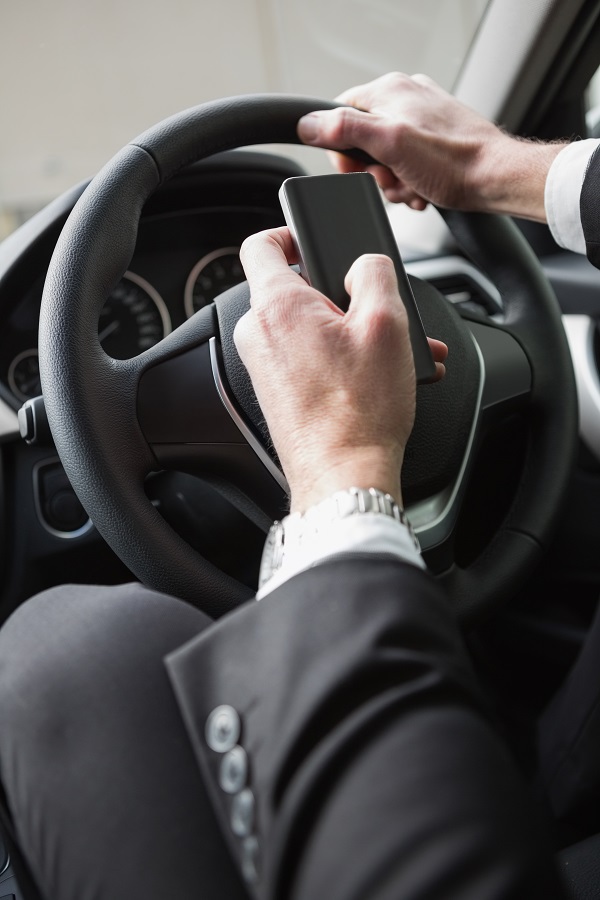DUI-E: States Crack Down on Using Electronics While Driving

The state of Washington just passed a new law prohibiting most use of electronics while driving. The law made headlines because it has been dubbed the “DUI-E” law – Driving Under the Influence of Electronics. Other states recently have enacted similar laws in an effort to promote public safety on the roadways, as scientific studies show that driving while using electronic devices can be just as impairing as use of intoxicating substances, drugs, and alcohol.
The Washington law expands existing law to ban text messaging, watching videos, and other uses of cell phones, tablets, etc. Drivers may touch devices with the “minimal use of a finger”, such as to decline a phone call or dismiss an alert that blocks view of GPS directions, but cannot hold devices in their hands. Motorists may use devices when pulled off the roadway or in an emergency. The law not only prohibits use of electronic devices, but also other distracting actions while driving that make a driver “dangerously distracted”. Lawmakers have said this may include eating, grooming, or writing while operating a motor vehicle.
At least 15 states ban the handheld use of cell phones while driving, and states are beginning to expand laws to cover not only talking on the phone, but also texting, watching videos, playing games, and more. Oklahoma bans handheld cell phone use and text messaging while driving. States have enacted these laws because distracted driving due to electronics has led to thousands of deaths and injuries across the country.
The name says it all: DUI-E is not that different from DUI. Many indicators of a driver distracted by electronics are extremely similar to signs of intoxicated driving: nearly striking an object or vehicle, failure to safely maintain lane control, driving into opposing or crossing traffic, slow response to traffic signals; turning abruptly or illegally, failure to maintain consistent speed, and failure to signal. Right now, DUI-E laws have considerably lighter penalties than DUI laws: usually fines, tickets, and points on the driver’s license. With many states enacting more specific and harsher DUI-E laws, DUI-E penalties might catch up to DUI some day.
If you need representation in an Oklahoma court for a DUI charge, seek out the attorney who teaches other attorneys and law enforcement about sobriety testing techniques. Clint Patterson, Esq., of Patterson Law Firm, a former Tulsa prosecutor now using his trial experience and expert-level knowledge of DUI science to defend drivers, may be able to challenge gas chromatography testing for you. To schedule a case evaluation, visit Patterson Law Firm online or call Clint’s office at (918) 550-9175.

